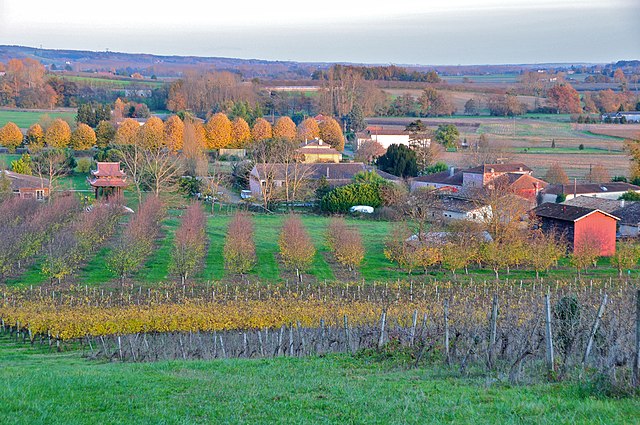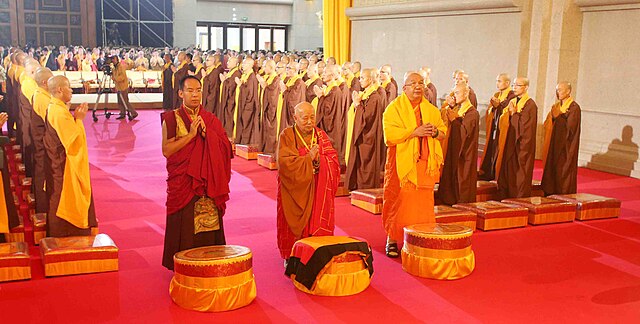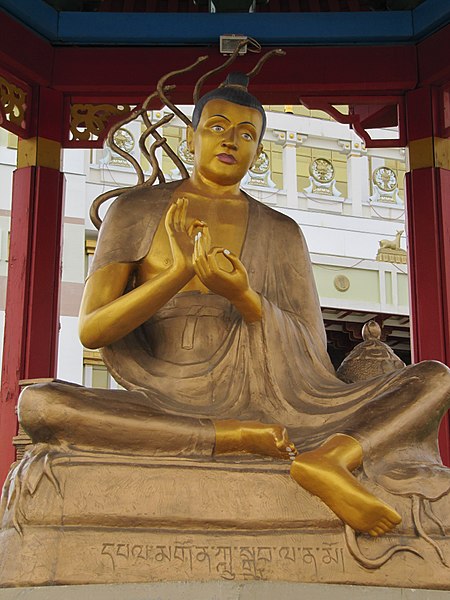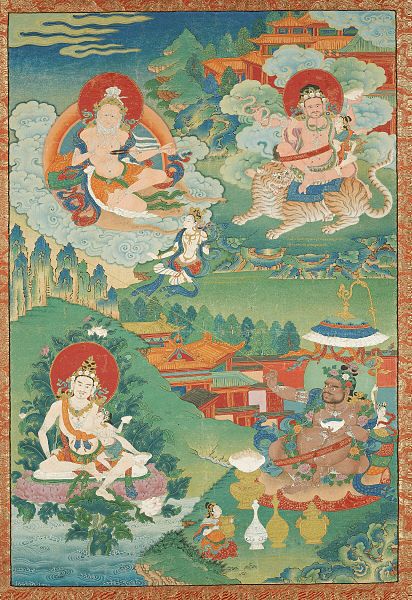The Plum Village Tradition is a school of Buddhism named after the Plum Village Monastery in France, the first monastic practice center founded by Thích Nhất Hạnh. It is an approach to Engaged Buddhism mainly from a Mahayana perspective, that draws elements from Zen and Theravada. Its governing body is the Plum Village Community of Engaged Buddhism.
New Hamlet - Plum Village France
The schools of Buddhism are the various institutional and doctrinal divisions of Buddhism that have existed from ancient times up to the present. The classification and nature of various doctrinal, philosophical or cultural facets of the schools of Buddhism is vague and has been interpreted in many different ways, often due to the sheer number of different sects, subsects, movements, etc. that have made up or currently make up the whole of Buddhist traditions. The sectarian and conceptual divisions of Buddhist thought are part of the modern framework of Buddhist studies, as well as comparative religion in Asia.
Representatives from the three major modern Buddhist traditions, at the World Fellowship of Buddhists, 27th General Conference, 2014.
The Tipitaka (Pali Canon), in a Thai Style book case. The Pali Tipitaka is the doctrinal foundation of all major Theravāda sects today
Nagarjuna, one of the most influential thinkers of Indian Mahāyāna Buddhism
Indian Buddhist Mahasiddhas, 18th century, Boston MFA.





